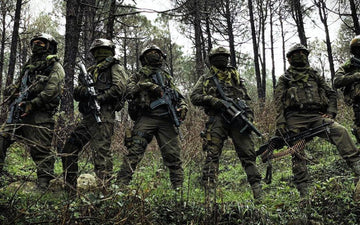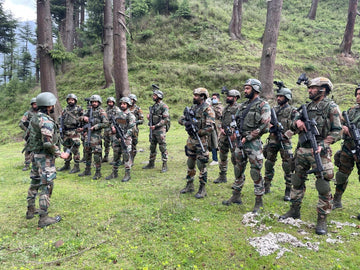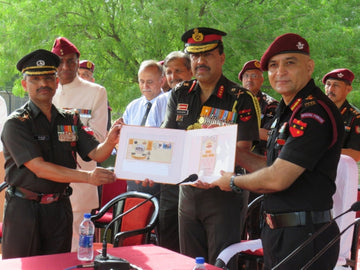When it comes to choosing a career path that is both fulfilling and impactful, aspiring professionals in India often find themselves weighing the options between becoming an Army officer and joining the prestigious Indian Administrative Service (IAS). These two prestigious careers attract many due to their unique roles in serving the nation, offering distinct benefits and challenges that can significantly shape one’s life. As individuals contemplate this crucial decision, factors such as pay scales, job responsibilities, training, social status, and future opportunities must be analyzed comprehensively. This article aims to provide an in-depth look at the key aspects of being an Army officer compared to an IAS officer, helping you to determine which career aligns better with your personal aspirations and values.
Historical Context
The evolution of both careers in India reflects a blend of tradition and changing societal needs. The Army, one of the oldest professions, revolves around national security, with roots that can be traced back to ancient times. The British-era establishment of the IAS in the 19th century intended to create a structured administration to manage India’s vast and diverse populace effectively. Over time, both positions have adapted to contemporary challenges while maintaining their core responsibilities of safeguarding the nation—whether through military strength or administrative governance.
Pay Scales and Allowances
One of the most visible differences between these two careers is the financial compensation associated with them.
Army Officer Compensation
-
Entry-Level Salary: The starting salary for entry-level Army officers, specifically Lieutenants, is approximately ₹56,000 - ₹57,000 per month. This initial compensation is supplemented by additional benefits that enhance the overall remuneration package.
-
Allowances: These officers receive various allowances such as:
-
Military Service Pay (MSP): A fixed monthly allowance that increases with rank.
-
Travel and Rations: Free rations and travel allowances are provided, significantly boosting their take-home pay.
-
Utility Benefits: Free electricity and subsidized housing can further increase financial advantages.
-
-
Long-term Earnings: At senior ranks, such as Major General, the salary can ascend to ₹2,50,000 per month after around 33 years of service.
IAS Officer Compensation
-
Entry-Level Salary: Similar to Army officers, entry-level IAS officers receive a starting salary of around ₹56,000.
-
Salary Progression: The salary structure for IAS officers tends to rise more sharply than that of Army officers, reaching over ₹2,00,000 per month at senior administrative positions, such as Secretary or Chief Secretary.
-
Various Allowances: IAS officers receive additional allowances, including:
-
Dearness Allowance (DA): Adjusted based on inflation.
-
House Rent Allowance (HRA) and Travel Allowance (TA), which can add significantly to their financial package.
-
Medical Allowance for healthcare, along with official housing options, which further enhance economic stability.
-
Job Roles and Responsibilities
Understanding what each role entails is critical for prospective candidates.
Responsibilities of an Army Officer
- National Security: Primarily tasked with defending the nation’s borders, Army officers uphold national security through strategic planning and operational leadership.
- Command and Leadership: They lead various battalions and units, requiring effective decision-making skills, along with physical endurance and mental resilience.
- Physical Training: The demanding 18–24 month training program instills discipline, teamwork, and command skills essential for military operations.
Responsibilities of an IAS Officer
- Administrative Governance: IAS officers serve at the crux of Indian bureaucracy, responsible for policy-making, revenue collection, and law enforcement.
- Policy Implementation: They ensure government policies are effectively administrated across various districts, which requires a deep understanding of local issues.
- Training Requirements: Their comprehensive training at the Lal Bahadur Shastri National Academy of Administration lasts 2 years and covers essential administrative skills, laws, and governance tactics.
Training and Career Path
Path to Becoming an Army Officer
- Rigorous Training: The intense training regimen of 18–24 months is a hallmark of Army preparation, focusing on physical fitness, military tactics, and leadership development.
- Rank Progression: Career advancement follows a structured path from Lieutenant to General, with opportunities for specialization in various fields like intelligence, engineering, and logistics.
Path to Becoming an IAS Officer
- Extensive Training: Training for IAS officers at LBSNAA encompasses a wide range of subjects, from public administration to legislative procedures, complemented by field training and attachments to various government departments.
- Career Trajectory: IAS officers typically start as Assistant Collectors, gradually progressing to higher roles like District Collector or Chief Secretary, gaining substantial influence over departmental policy decisions.
Rank Equivalence and Status
While pay scales offer a clear comparison, the social standing of both careers differs appreciably.
- Army Officers: They are revered for their bravery, sacrifice, and discipline. The respect and admiration bestowed upon them often extend beyond military circles, touching the civilian population as in the case of valorous deeds during times of crisis.
- IAS Officers: Holding significant sway over administration and governance, IAS officers command respect for their influence on public policy and governance. Their decisions impact lives at various societal levels.
Social Respect and Fulfillment
Both careers contribute significantly to the nation's well-being, fostering respect within their respective domains.
- Army Officers: Their valor in safeguarding the country earns them a unique form of admiration, often regarded as heroes who embody patriotism and sacrifice.
- IAS Officers: The high stakes of administrative roles ensure that IAS officers are recognized for their ability to navigate complex governance issues, fostering respect among peers and the general public alike.
Decision Factors
When deciding between these two careers, several vital factors should inform your choice:
- Physical and Mental Demands: Army officers face rigorous physical challenges and demanding operational duties. Conversely, IAS officers focus more on mental rigor, policy analysis, and administrative tasks.
- Career Aspirations: Those inclined towards strategic military roles, operation management, and national defense may find fulfillment as Army officers. In contrast, individuals interested in governance, public service, and administrative management may resonate more with the IAS career path.
- Financial Considerations: While both careers offer competitive starting salaries, the long-term financial trajectory and benefits differ, suggesting that thorough consideration of compensation structures is essential in decision-making.
Comparative Analysis
Both Army and IAS officers share the nobility of purpose by serving the country, yet the intricacies of their roles reveal divergences suited to different profiles of individuals:
| Aspect | Army Officer | IAS Officer |
|---|---|---|
| Salary (Initial) | ₹56,000 - ₹57,000 | ₹56,000 - ₹57,000 |
| Salary (Senior) | Up to ₹2,50,000 | Over ₹2,00,000 |
| Training Duration | 18–24 months | 2 years |
| Core Responsibility | National Defense | Administrative Governance |
| Advancement Path | Rank-based progression | Role-based progression |
Challenges and Solutions
Both professions come with their unique set of challenges:
- Army Officers: The high-stakes environment means that many face mental and physical stresses, including the psychological impact of combat and separation from family during long deployments. Support systems and mental health resources are essential to address these challenges.
- IAS Officers: Bureaucratic red tape, political pressures, and the need for decisive action can lead to stress and burnout. Resilience and ongoing professional development are critical for navigating complex administrative landscapes effectively.
Future Trends and Predictions
The landscape for both Army and IAS careers is evolving. With the increasing use of technology in defense and governance, the future may witness a demand for digitally savvy individuals in both sectors. Cybersecurity, data analysis, and technological innovations will play an integral role in shaping future strategies.
- In the Army: An increased focus on technology-driven warfare means that new recruits will likely require advanced technical skills and hybrid warfare knowledge.
- In IAS: An enhanced emphasis on e-governance and data analytics may reshape how policies are implemented and evaluated, demanding adaptability and tech-savviness from new IAS recruits.
Conclusion
Choosing between a career as an Army officer and an IAS officer is a significant decision that hinges on your passions, interests, and life aspirations. Both professions represent unique pathways of service to the nation, each with its own set of rewards, challenges, and societal contributions.
Whether you resonate with the fearless call of national defense or the influential seat of public governance, both Army and IAS officers collectively contribute towards building a robust and prosperous India. As you embark on this journey of decision-making, weigh the pay scales, responsibilities, training, and personal fulfillment associated with each career.
Ultimately, aligning your passion with purpose is paramount in making an impactful choice for your future. The choice you make not only influences your destiny but also echoes through the lives of the people you serve.





